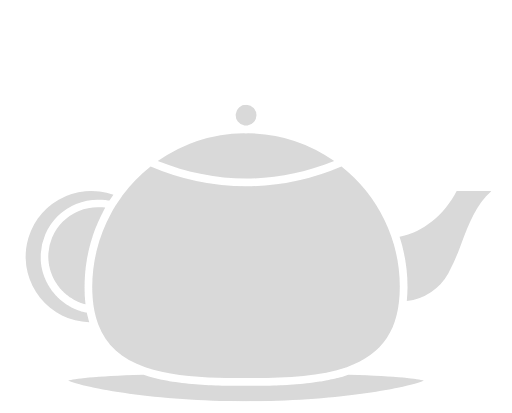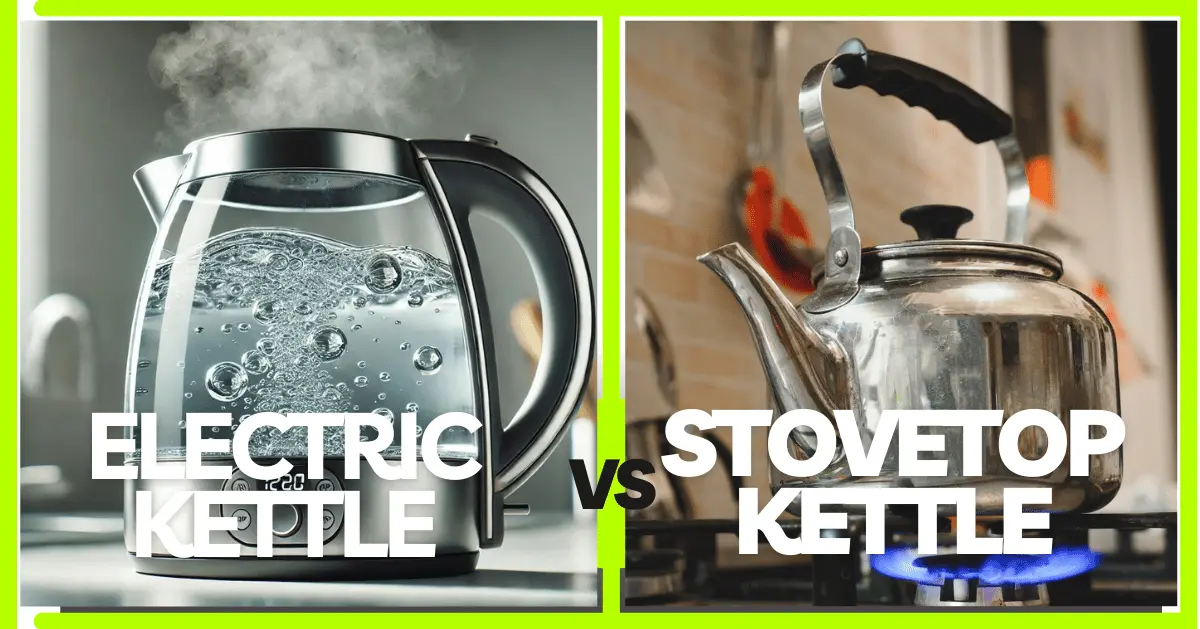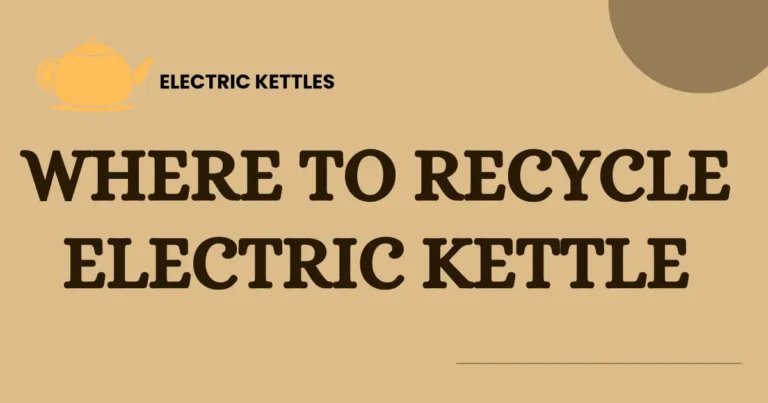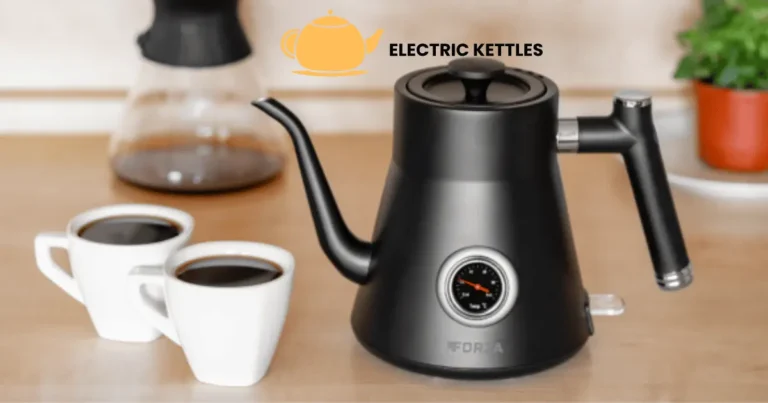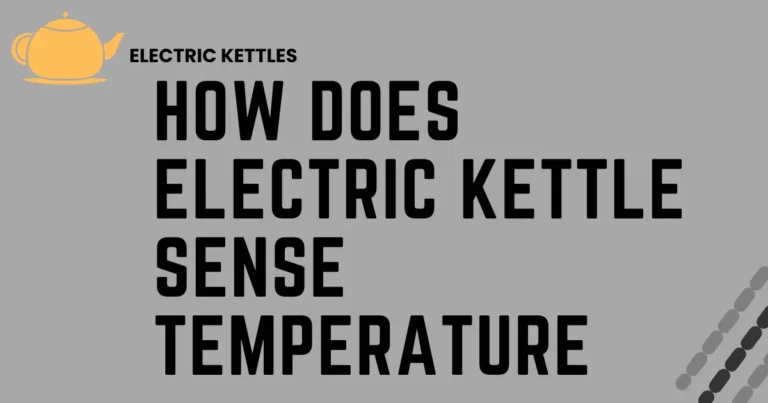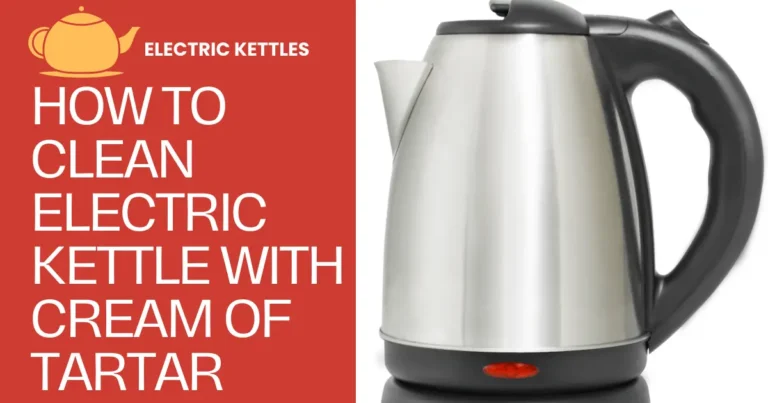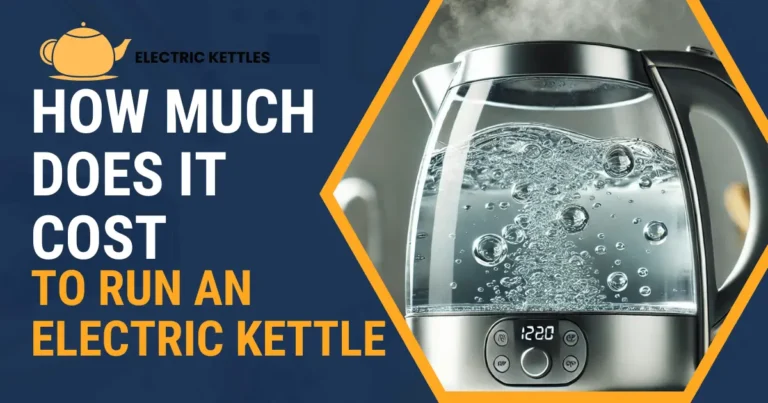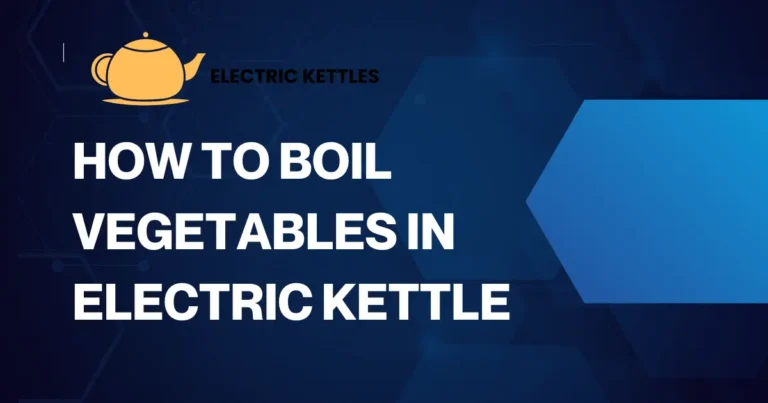Which Is Better Electric Kettle or Stove Top Kettle
Kettles are used to boil water quickly for drinks like tea or coffee. There are two main types electric kettles and stove top kettles. Electric kettles use electricity to heat water, while stove top kettles sit on a burner or stove. Both serve the same purpose but have different features and benefits.
Each kettle type has pros and cons based on factors like speed, energy use, and convenience. By understanding these differences, you can make an informed choice that fits your lifestyle and preferences.
Table of Contents
Features and Benefits of Electric Kettle
- Fast Boiling Speed: Electric kettles heat water quickly, usually within a few minutes. This is perfect for those who need hot water in a hurry, like during busy mornings or for making instant beverages.
- Automatic Shut-Off for Safety: Most electric kettles come with an automatic shut-off feature. This prevents the kettle from overheating or boiling dry, making it a safer option compared to stove top kettles.
- Energy Efficiency: Electric kettles only heat the water you need, which helps save energy. Since they boil water faster, they also use less electricity than keeping a stove burner on for a long time.
- Ease of Use: Electric kettles are very simple to operate. Just plug it in, add water, and press a button. There’s no need to monitor the kettle or worry about turning off the heat manually.
- Portability and Flexibility: Electric kettles are portable and can be used anywhere with an outlet. This makes them ideal for offices, dorms, or even while traveling.
- Additional Features: Many electric kettles offer extra features like temperature control for brewing different types of tea or coffee, and keep-warm functions that maintain water at the desired temperature for longer periods.
Features and Benefits of Stove top Kettle
- Traditional Appeal: Stove top kettles offer a classic, timeless design. They often add a rustic charm to the kitchen, appealing to those who prefer a more traditional or vintage look.
- Heat Source Flexibility: Stove top kettles can be used on various heat sources, such as gas, electric, or induction stoves. This flexibility allows them to work in different settings, including outdoor camping trips with portable burners.
- Control Over Brewing Temperature: With stove top kettles, you have more control over the heating process. You can monitor the heat and stop it at just the right temperature, which is especially useful for making certain types of tea or coffee.
- Durability and Longevity: Stove top kettles are often made from durable materials like stainless steel or copper. These materials make them sturdy, long-lasting, and resistant to wear, even with frequent use.
- No Need for Electricity: Unlike electric kettles, stove top kettles do not require electricity to operate. This makes them an ideal option for areas with power outages or in situations where electricity is not readily available.
- Aesthetic Variety: Stove top kettles come in various designs, colors, and materials, allowing users to choose one that fits their kitchen décor. From sleek modern designs to more traditional ones, there’s something for every style.
Comparing Performance and Usability
Boiling Speed
Electric kettles are much faster at boiling water, typically taking just a few minutes. Stove top kettles take longer since they rely on an external heat source, like a stove. For those in a rush, the electric kettle is a clear winner in terms of speed.
Energy Consumption
Electric kettles are more energy-efficient because they boil water quickly and only use electricity when needed. Stove top kettles, on the other hand, use more energy due to the longer boiling process, especially if left on high heat for an extended time.
Ease of Use
Electric kettles are simple to operate, just plug in and press a button. Stove top kettles require more attention, as you need to manually turn on the stove, adjust the heat, and turn it off when done. Electric kettles also feature automatic shut-off for added convenience.
Safety Considerations
Electric kettles come with built-in safety features like automatic shut-off and boil-dry protection. Stove top kettles don’t have these features, so users need to be more careful to prevent overheating or burning themselves on the handle. Electric kettles are generally safer for everyday use.
Noise Level
Electric kettles tend to be quieter, with a soft sound when boiling is complete. Stove top kettles often have a loud whistling sound, which can be helpful to alert you when the water is ready, but some may find it disruptive.
Cost and Value for Money
Upfront Costs
Electric kettles typically have a higher upfront cost compared to stove top kettles. Depending on the brand and features, electric models can be more expensive, especially those with advanced settings like temperature control. Stove top kettles, on the other hand, are generally more affordable and come in a wide range of prices.
Long-Term Savings
While electric kettles cost more initially, they tend to save energy over time due to their efficiency. Electric kettles boil water faster and use less energy overall, which can lead to lower electricity bills. Stove top kettles, although cheaper, might use more gas or electricity due to their slower boiling process.
Replacement and Repair Costs
Electric kettles may need repairs or replacements sooner, especially if the internal components wear out over time. Stove top kettles are simpler and tend to last longer, needing less maintenance and fewer replacements, which can be a cost-effective choice in the long run.
Overall Value
The value for money depends on your specific needs. If you prioritize speed, convenience, and energy savings, an electric kettle offers better value. If you prefer a more affordable option with less reliance on electricity, a stove top kettle might be the better choice.
User Preferences and Practical Scenarios
Ideal for Busy Lifestyles
For people with busy schedules, electric kettles are a great choice due to their fast boiling time and ease of use. They are perfect for those who need hot water quickly, whether for tea, coffee, or instant meals. The automatic shut-off feature adds convenience, letting you focus on other tasks.
Best for Tea and Coffee Lovers
Electric kettles with temperature control are ideal for tea or coffee enthusiasts who need precise water temperatures for different brews. On the other hand, stove top kettles offer more control over the boiling process, which some traditional tea lovers prefer for a slower, mindful brewing experience.
Outdoor and Camping Use
Stove top kettles are a practical option for camping or outdoor activities. Since they don’t need electricity, they can be used on portable stoves or open fires. This makes them more versatile for situations where power is not available, unlike electric kettles that require an outlet.
Indoor vs. Outdoor Usage
Electric kettles are better suited for indoor use, particularly in homes, offices, or dorms. Stove top kettles, however, are more flexible in terms of where they can be used. Whether on a stove at home or on a campfire, they are versatile and ideal for both indoor and outdoor environments.
Conclusion
Choosing between an electric kettle and a stove top kettle depends on your needs and lifestyle. If you want fast boiling, convenience, and safety features like automatic shut-off, the electric kettle is the better choice. It’s ideal for people with busy schedules who need hot water quickly and efficiently.
However, if you prefer a more traditional approach and don’t mind waiting longer, the stove top kettle might be a better fit. It’s more flexible, especially for outdoor use, and often lasts longer with fewer repairs. Both options have their pros and cons, so the best choice depends on how you plan to use it.
